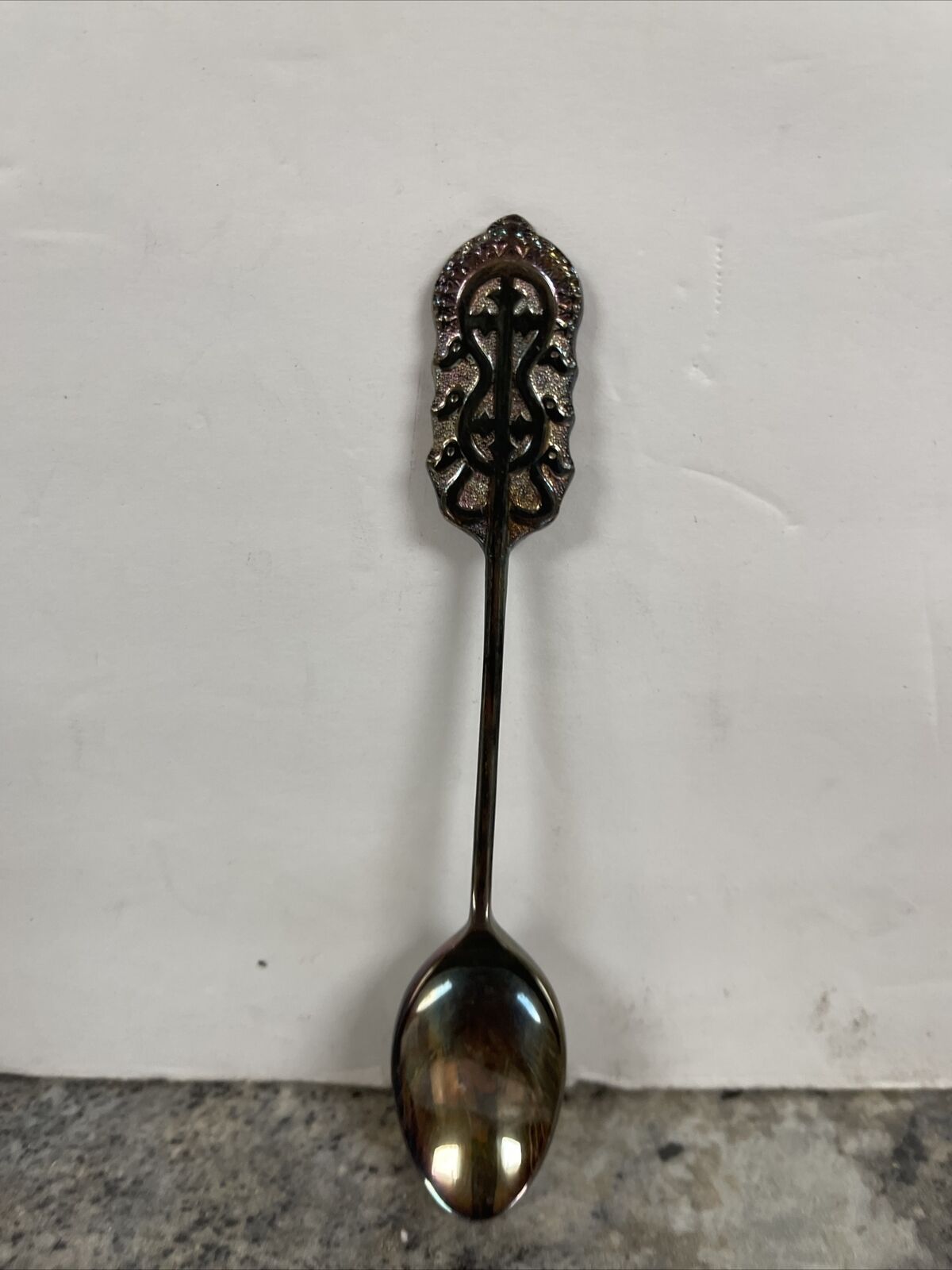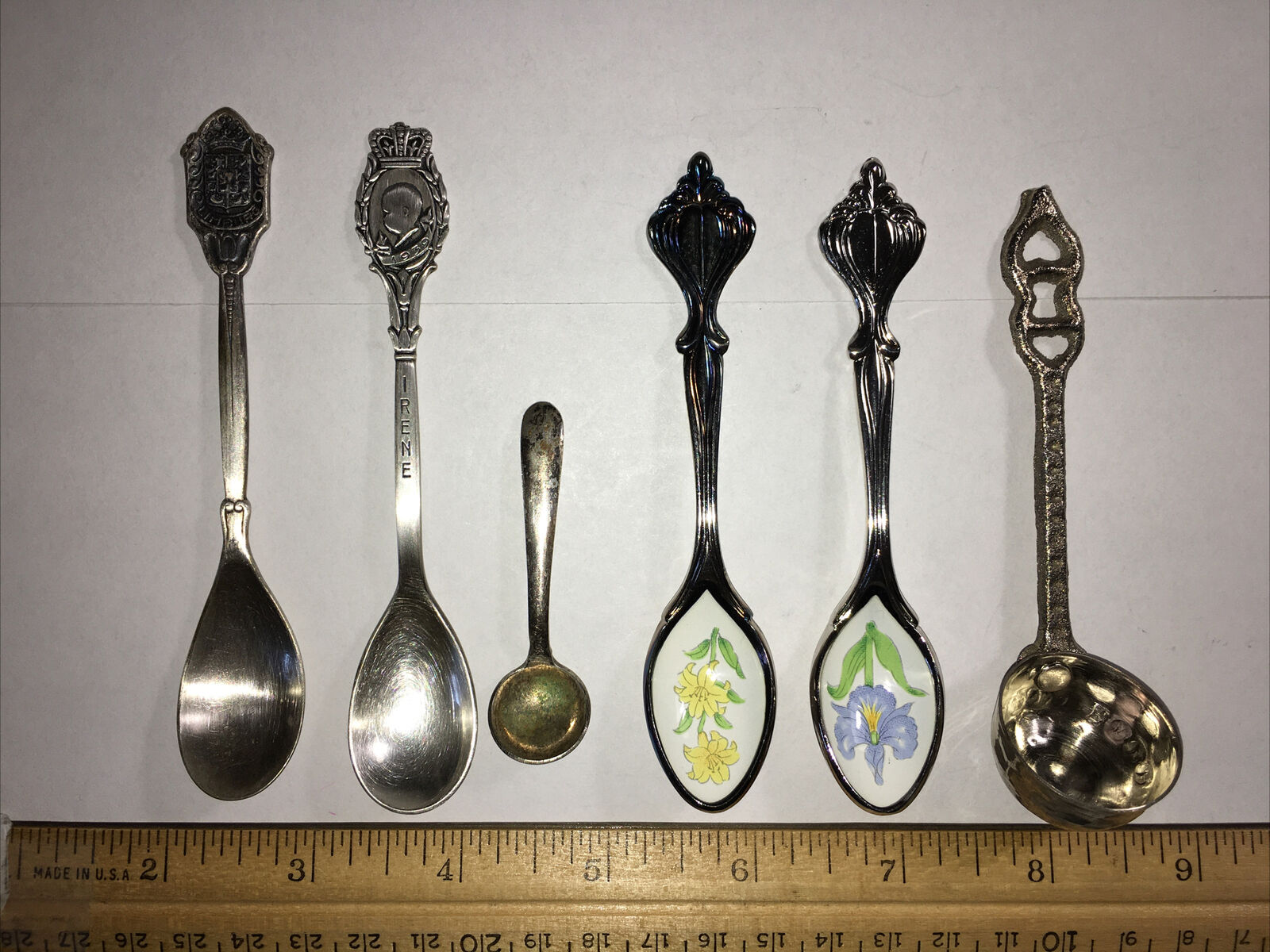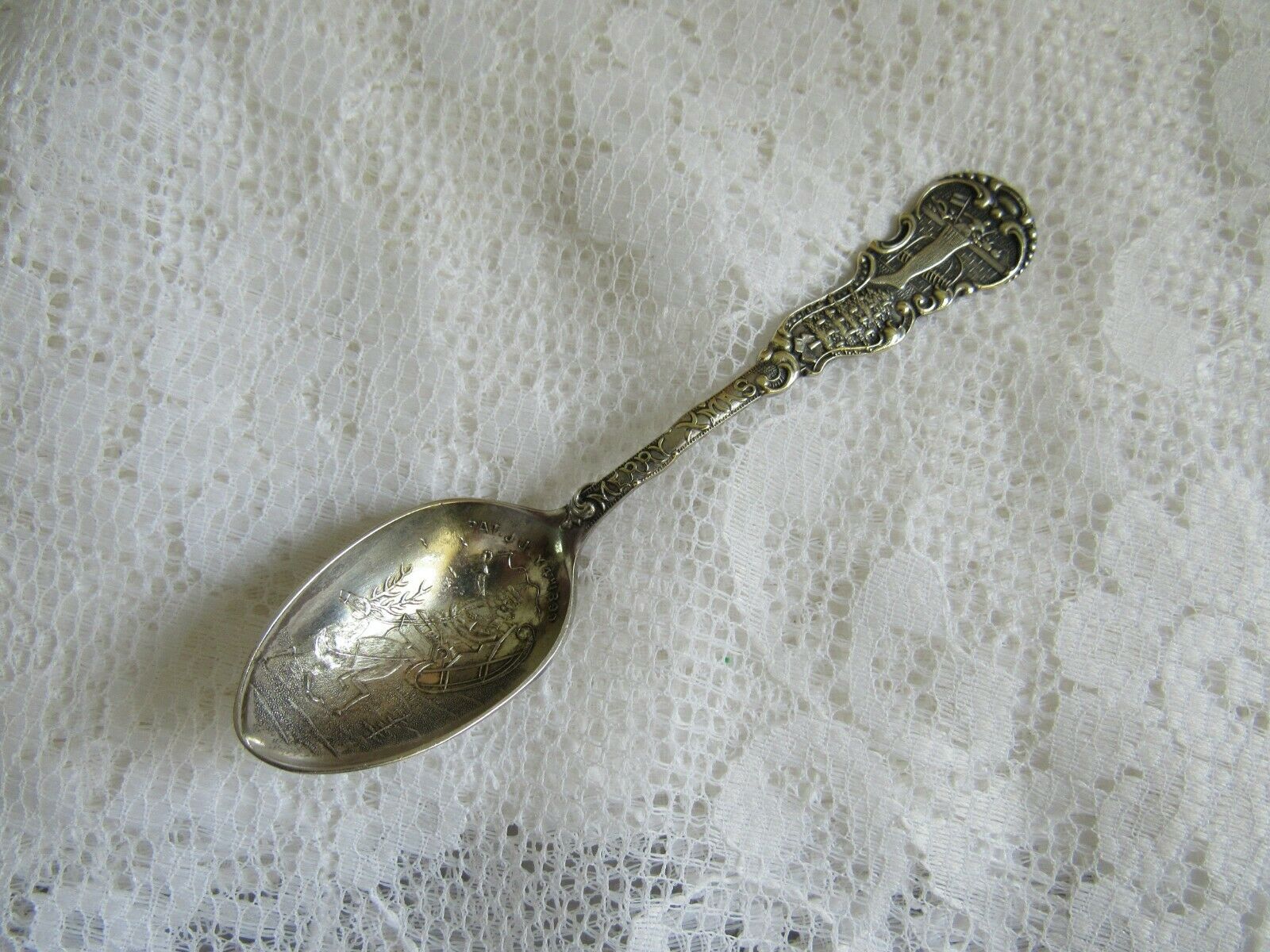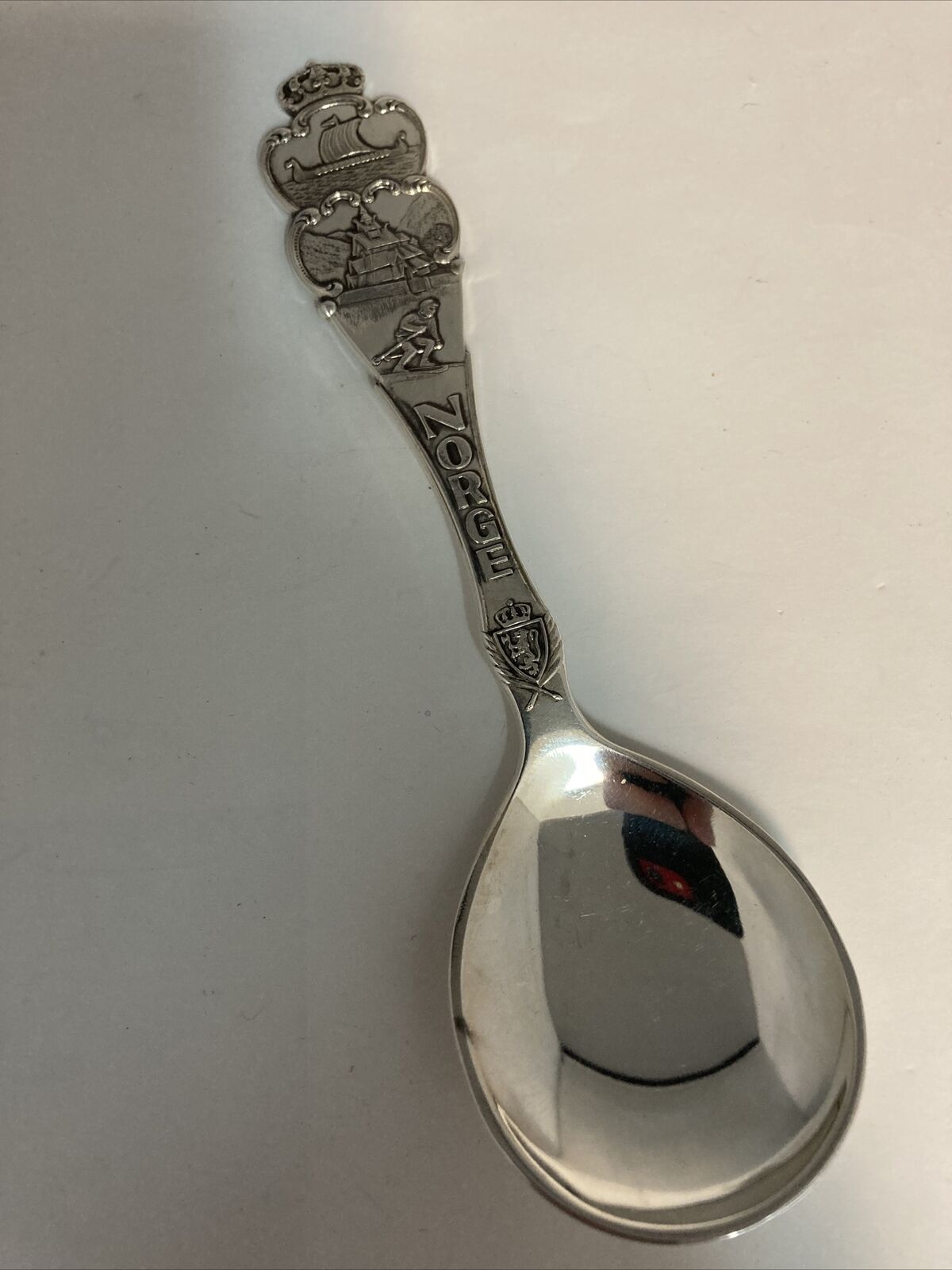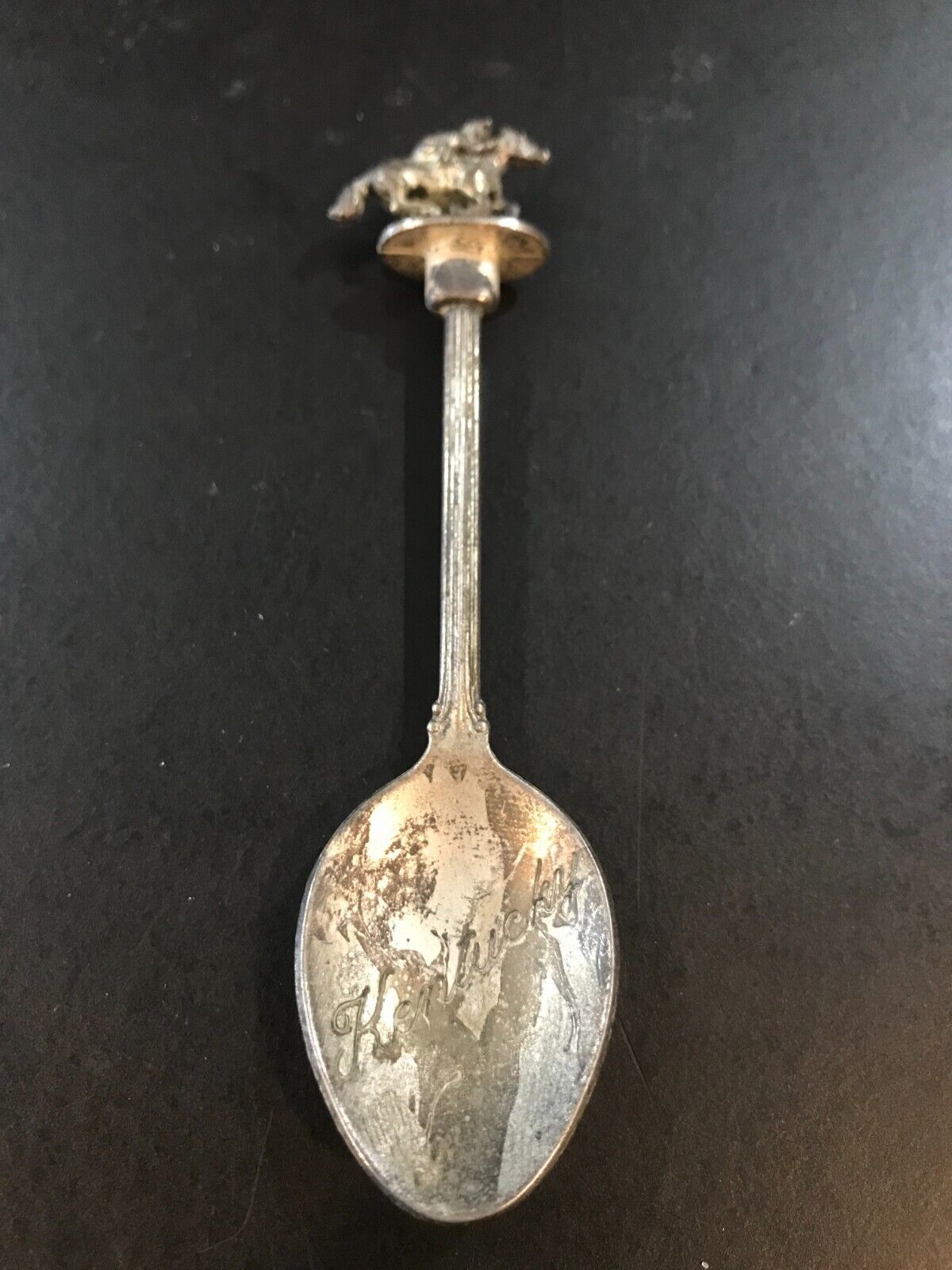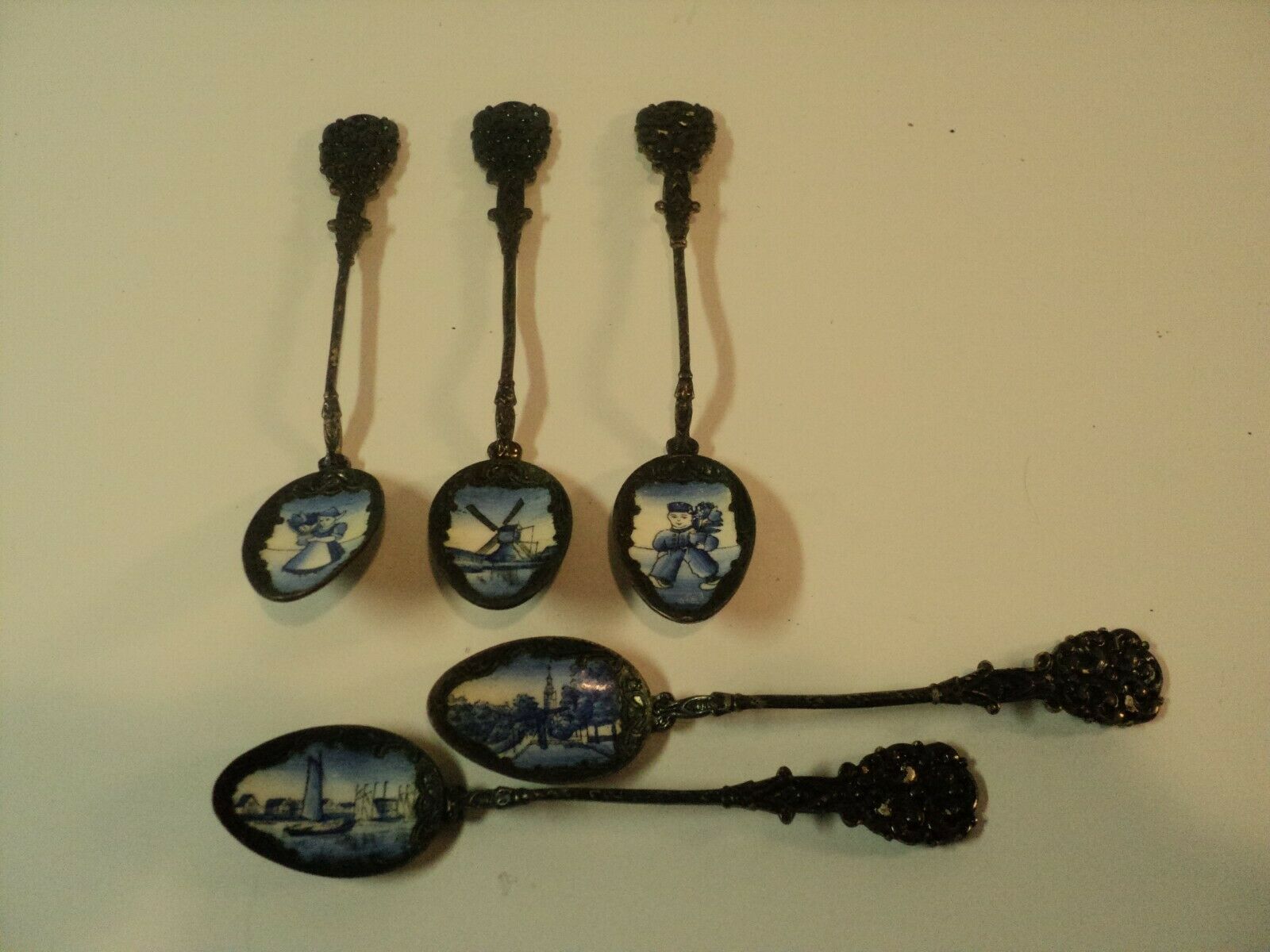-40%
3 Silver Souvenir Spoons Capt. Sigsbee Battleship Maine- Malden's First School H
$ 18.48
- Description
- Size Guide
Description
3 Silver Souvenir Spoons Capt. Sigsbee Battleship Maine- Malden's First School House - US Battleship MaineDescription
3 Silver Souvenir Spoons Capt. Sigsbee Battleship Maine- Malden's First School House - US Battleship Maine
ALL THREE SPOONS ARE BY GEO. E. HOMER BOSTON MASS
PATTERN IS SIMILAR TO "CLIFTON" FROM 1896
THEY ARE NOT MONOGRAMMED
SIZE approx. 4" LONG
from www.history.navy.mil online comes the import of Captain Sigsbee and the Maine " The
Spanish-American War
(21 April to 13 August 1898) was a turning point in the history of the United States, signaling the country's emergence as a world power. The blowing up of the battleship
Maine
in Havana Harbor on the evening of 15 February was a critical event on the road to that war. In order to understand the role the ship's sinking played in the start of the war, one must know the context in which the event took place.The battleship arrived on 25 January. Spanish authorities in Havana were wary of American intentions, but they afforded Captain
Charles Sigsbee
and the officers of
Maine
every courtesy. In order to avoid the possibility of trouble,
Maine
's commanding officer did not allow his enlisted men to go on shore. Sigsbee and the consul at Havana, Fitzhugh Lee, reported that the Navy's presence appeared to have a calming effect on the situation, and both recommended that the Navy Department send another battleship to Havana when it came time to relieve
Maine
.
At 9:40p.m. on 15 February, a terrible explosion on board
Maine
shattered the stillness in Havana Harbor. Later investigations revealed that more than five tons of powder charges for the vessel's six and ten-inch guns ignited, virtually obliterating the forward third of the ship. The remaining wreckage rapidly settled to the bottom of the harbor. Most of
Maine
's crew were sleeping or resting in the enlisted quarters in the forward part of the ship when the explosion occurred. Two hundred and sixty-six men lost their lives because of the disaster: 260 died in the explosion or shortly thereafter, and six more died later from injuries. Captain Sigsbee and most of the officers survived because their quarters were in the aft portion of the ship.
Spanish officials and the crew of the civilian steamer
City of Washington
acted quickly in rescuing survivors and caring for the wounded. The attitude and actions of the former allayed initial suspicions that hostile action caused the explosion, and led Sigsbee to include at the bottom of his initial telegram: "Public opinion should be suspended until further report."
The U.S. Navy Department immediately formed a board of inquiry to determine the reason for
Maine
's destruction. The inquiry, conducted in Havana, lasted four weeks. The condition of the submerged wreck and the lack of technical expertise prevented the board from being as thorough as later investigations. In the end, they concluded that a mine had detonated under the ship. The board did not attempt to fix blame for the placement of the device.
When the Navy's verdict was announced, the American public reacted with predictable outrage. Fed by inflammatory articles in the "Yellow Press" blaming Spain for the disaster, the public had already placed guilt on the Spanish government. Although he continued to press for a diplomatic settlement to the Cuban problem, President McKinley accelerated military preparations begun in January 1898 when an impasse appeared likely. The Spanish position on Cuban independence hardened, and McKinley asked Congress on 11 April for permission to intervene. On 21 April, the president ordered the Navy to begin a blockade of Cuba, and Spain followed with a declaration of war on 23 April. Congress responded with a formal declaration of war on 25 April, made retroactive to the start of the blockade.
The destruction of
Maine
did not cause the U.S. to declare war on Spain, but it served as a catalyst, accelerating the approach to a diplomatic impasse. In addition, the sinking and deaths of U.S. Sailors rallied American opinion more strongly behind armed intervention."
Condition - Antique very good
THE-ARCHIVES an eBay seller since 1998, and an antiques dealer appraiser for over 40 years.
See my other listings
for more great items!
Payment
Shipping
Other Items
txzj pxzj2836 txzj67




